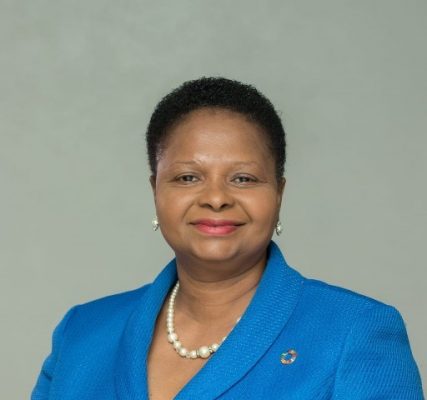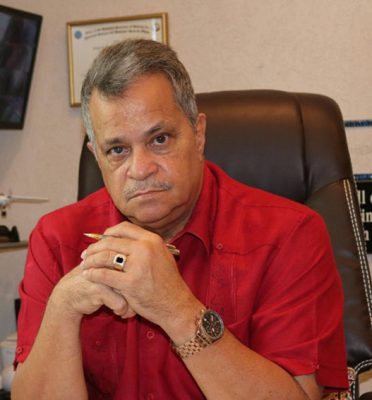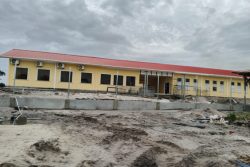Our story in this issue of the Stabroek Business arising out of some of what is currently being reported on the impact so far of the globally worrying Coronavirus (COVID-19) and the manner in which it has been impacting globally in the region and in neighbouring countries, is timed to raise awareness of the malady and to help alert the authorities as much as the general populace to the fact that we too are vulnerable.
Our motivations are twofold. The first is, what we believe to be the risk which by no means can be dismissed that the virus may find its way here. The second is that is that the extant preoccupation with our political circumstances may well push COVID-19 and its possible consequences to the back of our minds (Unfortunately however, before this article made it to the press, President Granger announced to the nation that there was one reported case of COVID-19, a Guyanese woman, who had recently travelled from the US and that she has succumbed to the infection).

Interestingly, global reporting of COVID-19 has focussed to a significant extent on its impact on the international business community. The Stabroek Business’ report in this issue on the adjustments that the international oil industry has had to make to its schedule of meetings attests to what, globally, is a real fear that the virus could spread even further. In the CARICOM region, Trinidad and Tobago, particularly, appears to be going to considerable lengths to keep the virus at bay by not only forbidding entry into the country for a particular period by visitors to countries believed to have been already affected by the virus, but also placing restraints on some of the physical contact associated with every day civil courtesies.

Jamaica too, where we are aware of at least one confirmed case of COVID-19, has been seeking to raise the level of national awareness of the issue. Earlier this week the Jamaica Chamber of Commerce (JCC) pronounced on the issue, urging the country’s business sector to resist what may well be a temptation to panic and to seek instead to heighten levels of both awareness and preparedness in the face of what the Jamaica Observer of Wednesday March 11 refers to as a “looming crisis.”
It transpires that in the course of an exchange with the Observer, the JCC’s junior President Lloyd Distant Jr. specifically alluded to the fact that, according to the Observer, the epidemic was already having “major implications for global commerce as seen by the disruptions to trade, particularly in China – the world’s manufacturing hub – along with the fallout in oil prices, [and] decline in the US stock market, among other implications, it is doubtful that Jamaica can escape likely effects.” Distant himself is quoted directly as saying that “we would be naïve to think that it is not going to have an impact on Jamaica. What we have to be cognisant of is how we prepare ourselves for impacts.”
Even in the midst of our own current and compelling political distractions, Guyana cannot afford not to keep the menace of COVID-19 on its radar. In this regard it is apposite to point out that the rise of COVID-19 coincides with a period of ‘high traffic’ in an out of the country linked to business pursuits including serious investment inquiries. This has implications not just for upgraded monitoring of our ports of entry (bearing in mind that some of our unofficial ports of entry suffer from no monitoring at all) but for an assessment of the extent of our defences against COVID-19 and the various ways in which those defences can be strengthened.
It is, as well, instructive to remind ourselves that back in January, at a briefing on the subject of COVID-19, Minister of Health Volda Lawrence along with the country’s Chief Medical Officer Dr Shamdeo Persaud and the local PAHO/WHO representative Dr William Adu-Krow sought to offer assurances not just that, at least up to that time, Guyana was COVID-19-free and also that our health services were equipped to detect and effectively treat the virus..
Since that time our global reading of the situation strongly suggests that the virus has become a more formidable menace; so that while the January assurances provided by the authorities might have been adequate at the time, now that we are aware that the situation has changed both regionally and globally, (the virus now being present in at least one neighboring country (Brazil) and possibly in one or more CARICOM territories and as we earlier stated, here in Guyana as well) an update is urgently required.
We are aware of the recently signed CARICOM protocol setting out minimum standards for responding to COVID-19 though the challenge for a region such as ours has to do with the pressures associated with having to constantly allay fears and provide updated assurances even as evidence grows of a heightened sense of global worry as manifested in the announcement earlier this week that fear of further spread of the virus had triggered the abandonment of some of the long-scheduled and key face to face meetings of the global oil industry.
That is as significant an indication as we can get of the need for both the public and private sectors to raise their game, individually and collectively, by providing both status reports on the extent of the country’s vulnerability to COVID-19, how, if at all, the phenomenon is impacting on business and the measures that are in place to keep the country safe.









